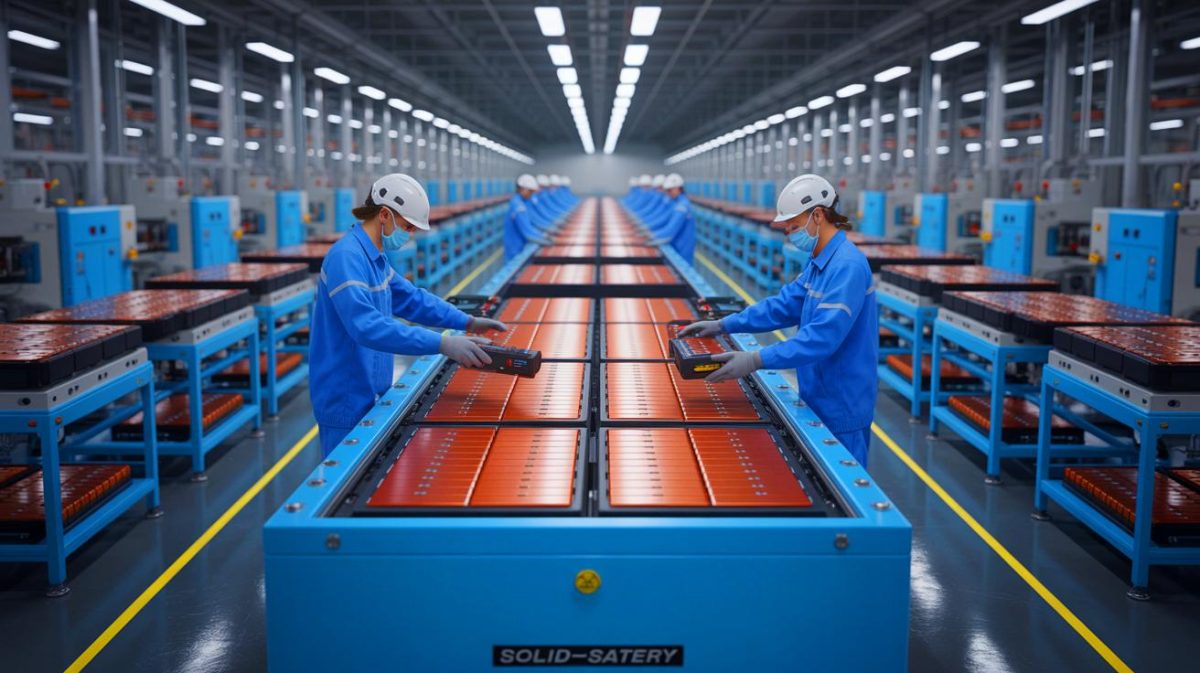| IN A NUTSHELL |
|
In the rapidly evolving landscape of electric vehicle (EV) technology, the race to produce next-generation solid-state batteries has intensified. Several leading companies are striving to bring these innovations to market within the next two years, promising significant advancements in energy density and safety. Among these pioneers, Gotion stands out with its recent launch of a pilot production line dedicated to refining all-solid-state battery technologies. This development marks a crucial step toward the realization of safer and more efficient battery solutions that could redefine the future of electric mobility.
Gotion’s Milestone in Solid-State Battery Innovation
Gotion, a global leader in EV battery manufacturing, has officially entered the competitive arena of solid-state batteries. Unveiled at Gotion High-tech’s 13th tech conference, their new pilot production line represents a major milestone in the journey toward safer and more efficient battery technologies. With a capacity of 0.2 gigawatt-hours, this facility is set to produce Gotion’s all-solid-state Gemstone battery cells, which are already undergoing rigorous real-world testing in electric vehicles.
The Gemstone batteries promise a remarkable increase in energy density, delivering approximately 350 watt-hours per kilogram. This enhanced capacity translates to a 40 percent improvement over traditional lithium ternary cells, promising more efficient and longer-lasting power for EVs. As these batteries continue to undergo testing, their potential to revolutionize the industry becomes increasingly apparent.
Pushing Battery Tech Forward
Under the leadership of Pan Ruijun, head of research and development for the Gemstone project, Gotion has emphasized the use of domestically manufactured equipment in their production setup. This strategic move not only reduces reliance on foreign suppliers but also underscores China’s growing leadership in battery innovation. Ruijun highlighted that after a full year of performance validation, individual Gemstone cells have achieved a 150 percent increase in capacity, showcasing their potential to transform the industry.
The emphasis on safety is another critical aspect of Gotion’s innovation. The Gemstone batteries have successfully passed rigorous tests, including pin-prick, hot-box, overcharge, and crush simulations. These tests reinforce their promise as a safer alternative to conventional lithium-ion cells, which are prone to overheating and thermal runaway. With these advancements, the vision of an ultimate battery that combines safety and efficiency may soon become a reality.
Gotion Eyes 2030 for Mass Production
While Gotion has not yet set an official date for mass production, the company has previously indicated that small-scale production and vehicle integration could begin by 2027, with full-scale manufacturing anticipated by 2030. This timeline aligns with similar goals set by major competitors, such as CATL and BYD, who are also targeting 2027 for the limited deployment of solid-state batteries.
Despite the enthusiasm surrounding these developments, significant challenges remain. Scaling up manufacturing, ensuring long-term material stability, and reducing production costs are among the hurdles that must be addressed. Additionally, the introduction of stricter safety standards by the Chinese government, set to take effect in 2026, aims to further improve battery safety. Nevertheless, Gotion’s transition to pilot-scale production signals a shift from theoretical development to practical implementation, positioning the company at the forefront of the solid-state revolution.
The Broader Implications for the EV Market
With a 3.5 percent share of the global EV battery market as of early 2025, Gotion is now poised to play a pivotal role in the solid-state battery sector. If the company achieves its projected goals, the Gemstone line could significantly influence battery architecture and accelerate the transition to cleaner transportation. This development is part of a broader trend as the industry moves toward more sustainable and efficient energy solutions.
The potential impact of solid-state batteries extends beyond individual manufacturers. As these technologies become more widely adopted, they could lead to significant reductions in greenhouse gas emissions, improved vehicle performance, and greater energy independence. The implications for the global EV market are profound, promising a cleaner and more efficient future for transportation.
As the race to develop and commercialize solid-state batteries intensifies, the entire industry stands on the brink of a transformative leap forward. The progress made by companies like Gotion is a testament to the potential of innovation to reshape the future. What further advancements will we see as these technologies continue to evolve, and how will they redefine the way we power our world?
Did you like it? 4.5/5 (20)








Wow, 40% increase in energy density! Can’t wait to see these in action. 😃
Est-ce que ces batteries seront compatibles avec tous les modèles de voitures électriques ?
Gotion est vraiment en train de changer la donne avec cette nouvelle ligne de production. Impressionnant !
J’espère que les coûts ne seront pas trop élevés pour le consommateur final.
350 watt-hours per kilogram? Is that a lot compared to what’s currently available?
La sécurité des batteries est cruciale. Merci Gotion pour ces avancées !
2027 seems so far away for small-scale production. Can they speed things up?
Pourquoi tant de temps pour la production de masse ? D’autres entreprises vont sûrement les rattraper d’ici là.
Enfin, une solution pour éviter la surchauffe des batteries ! 😊
Je suis sceptique. Les promesses sont belles, mais est-ce que ça marchera en réalité ?